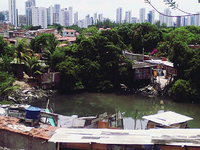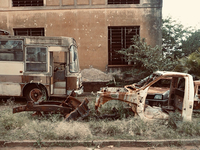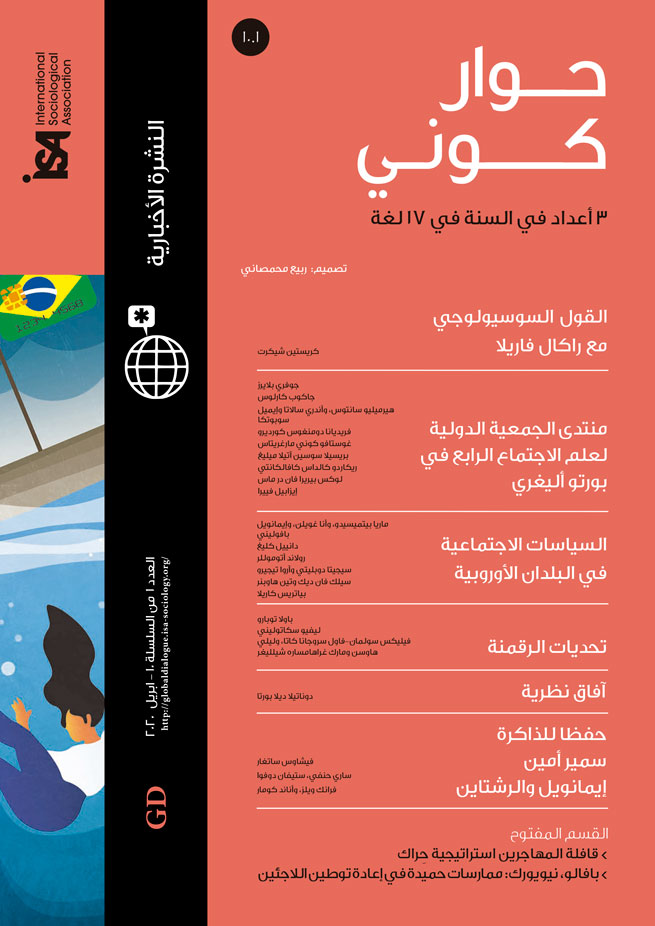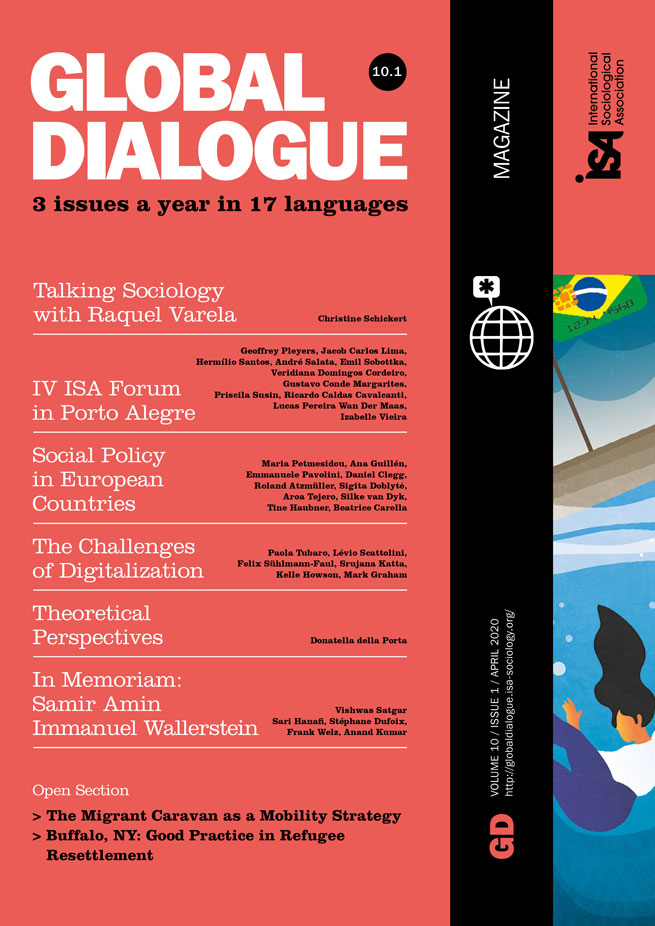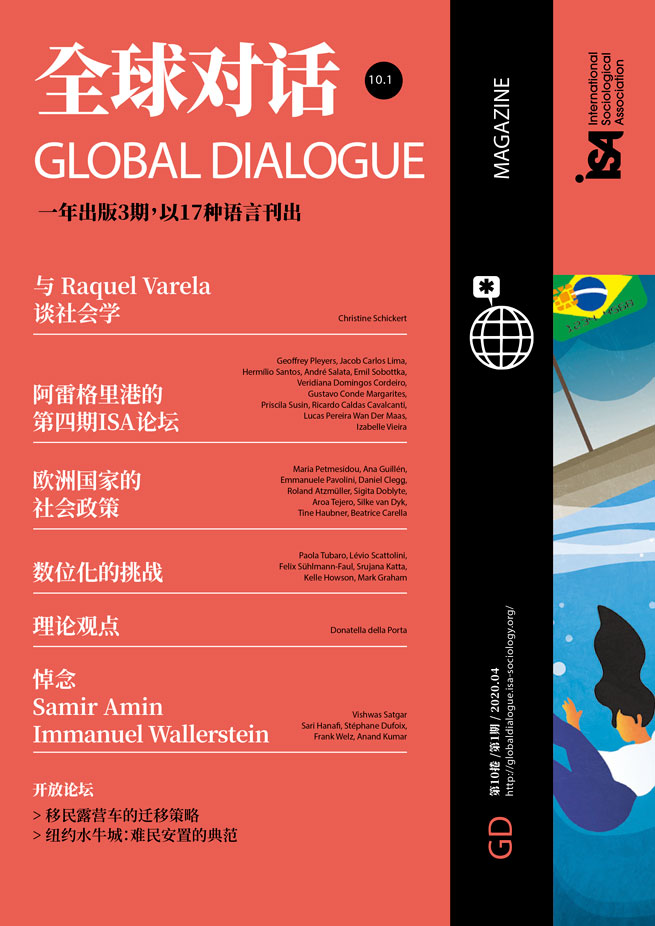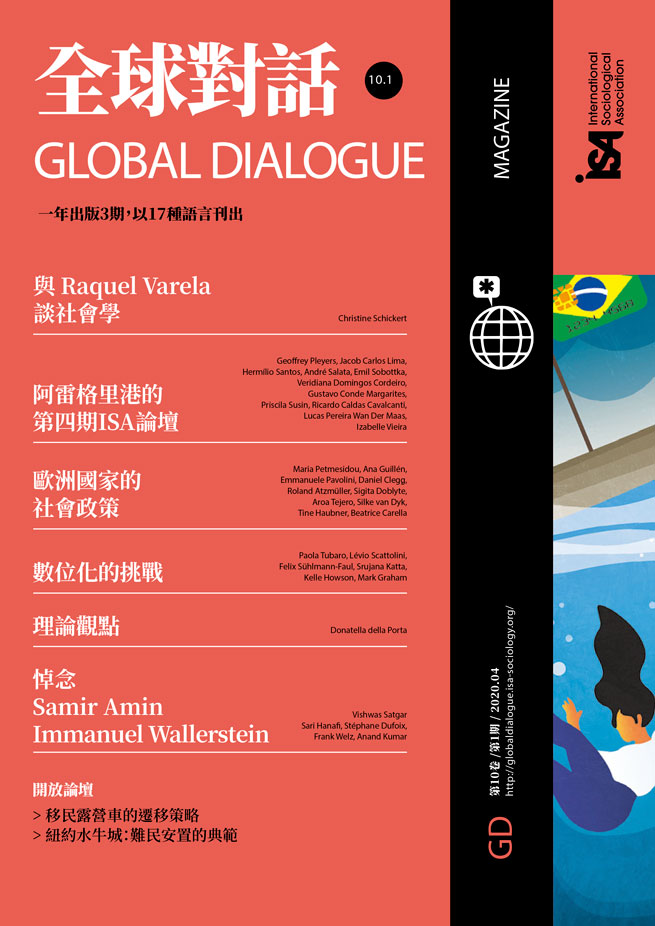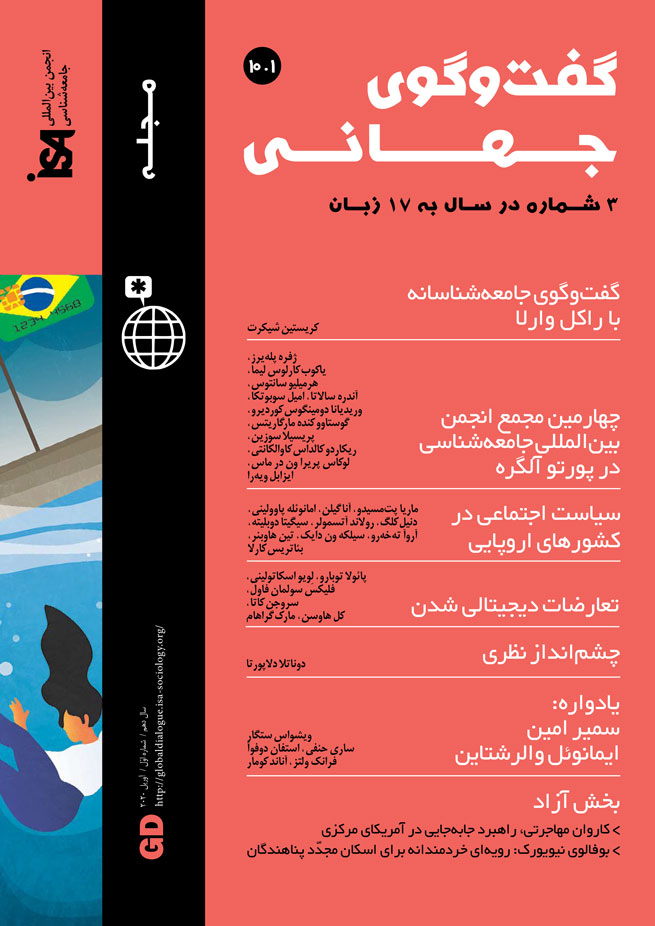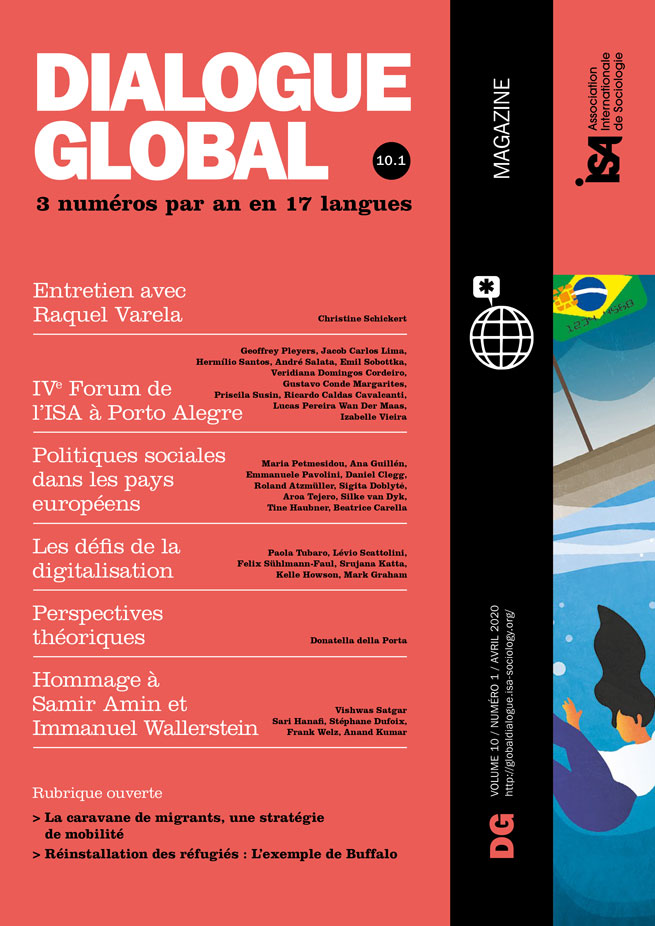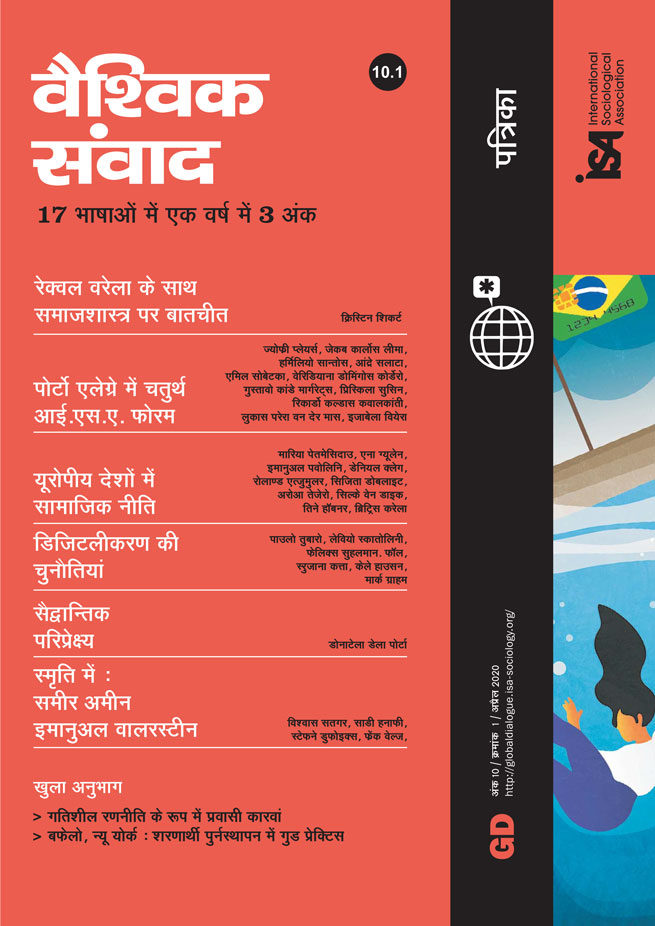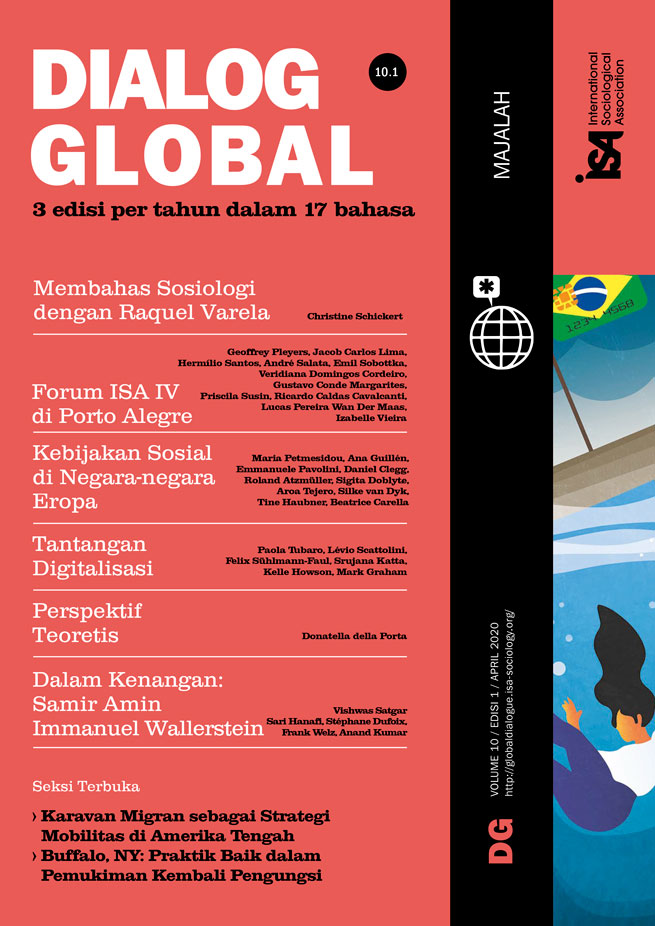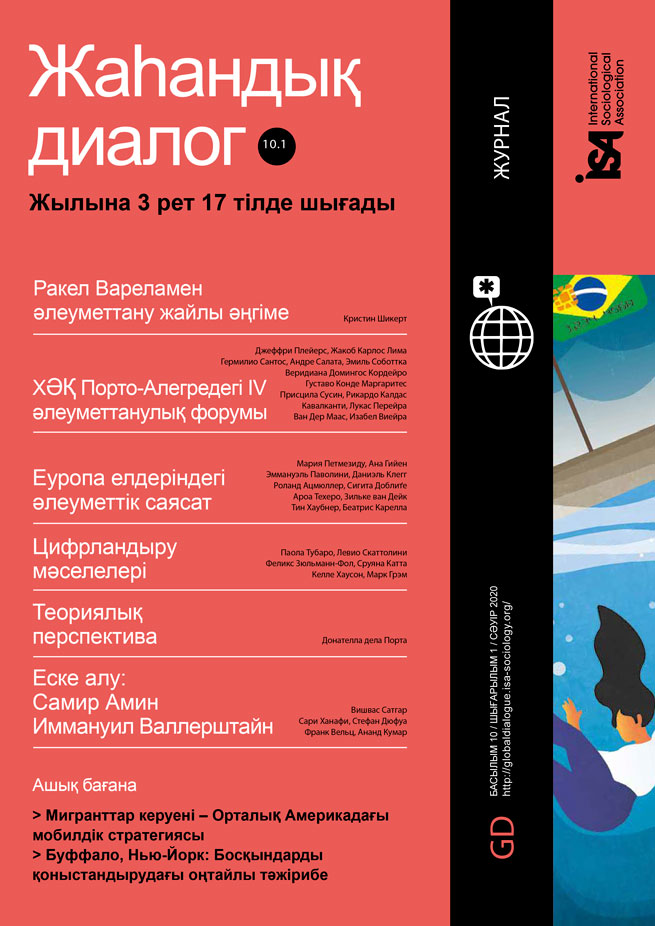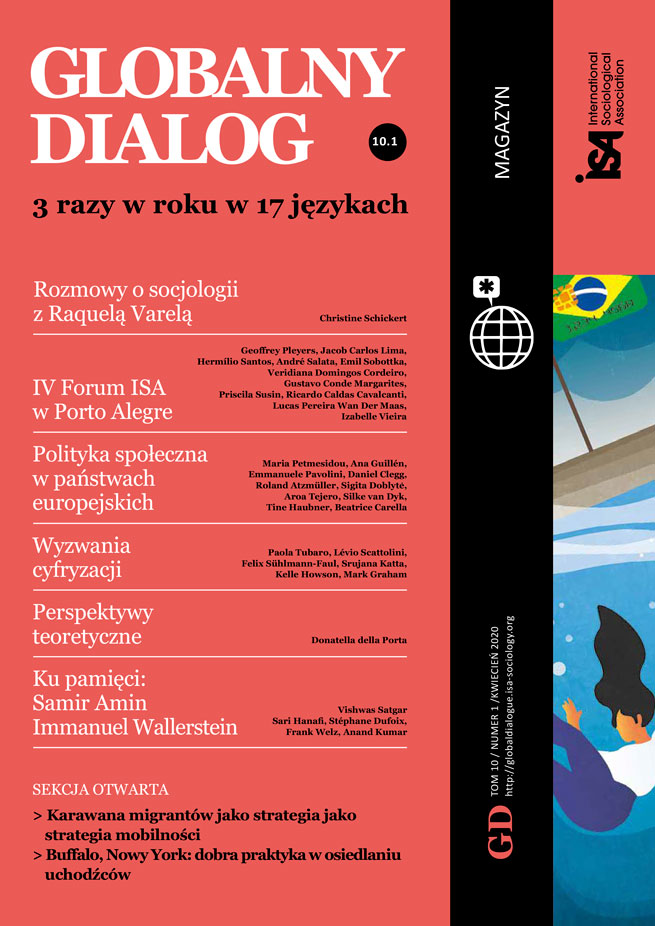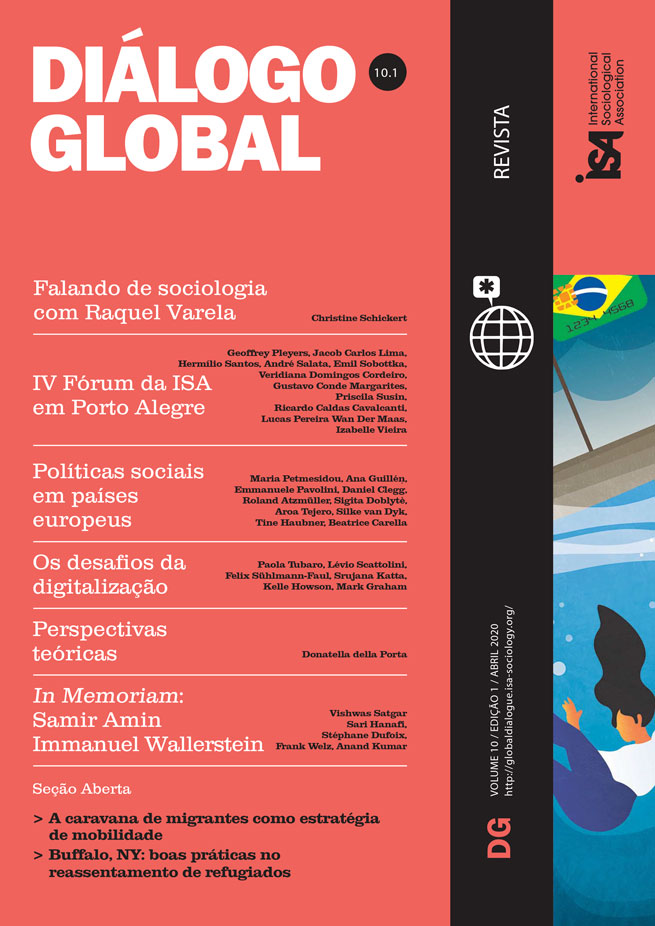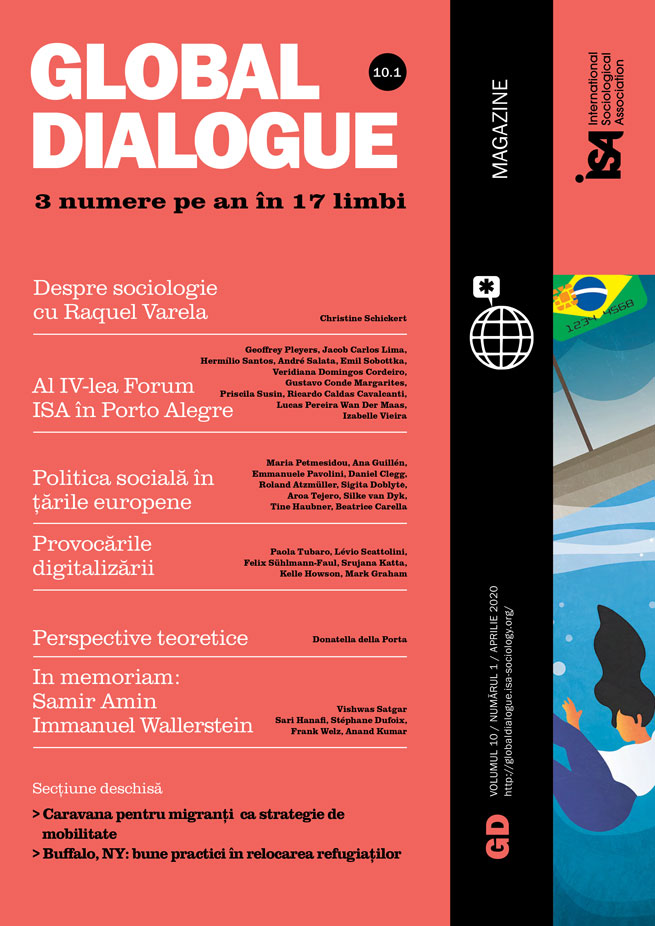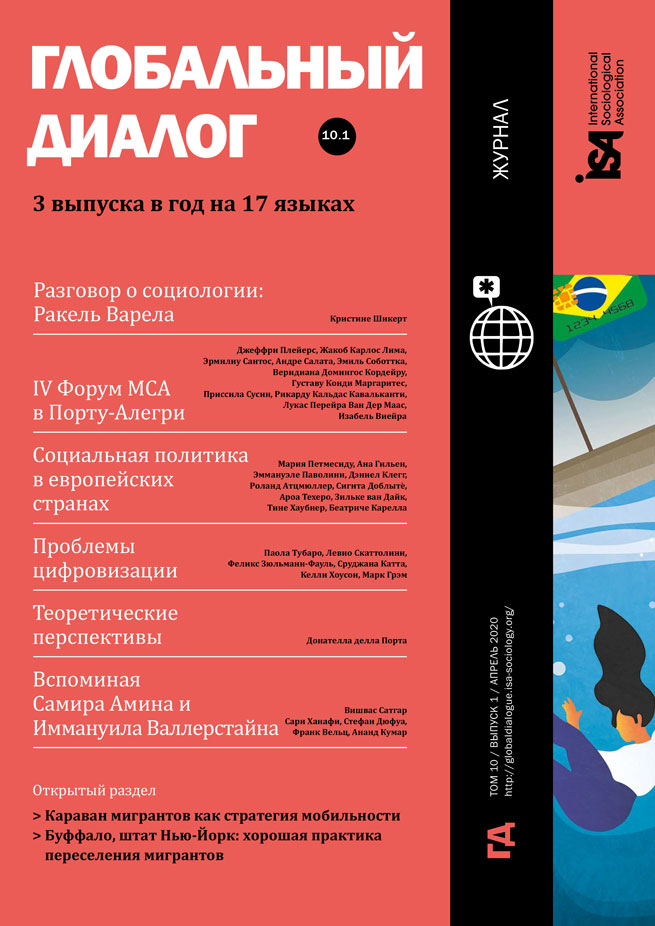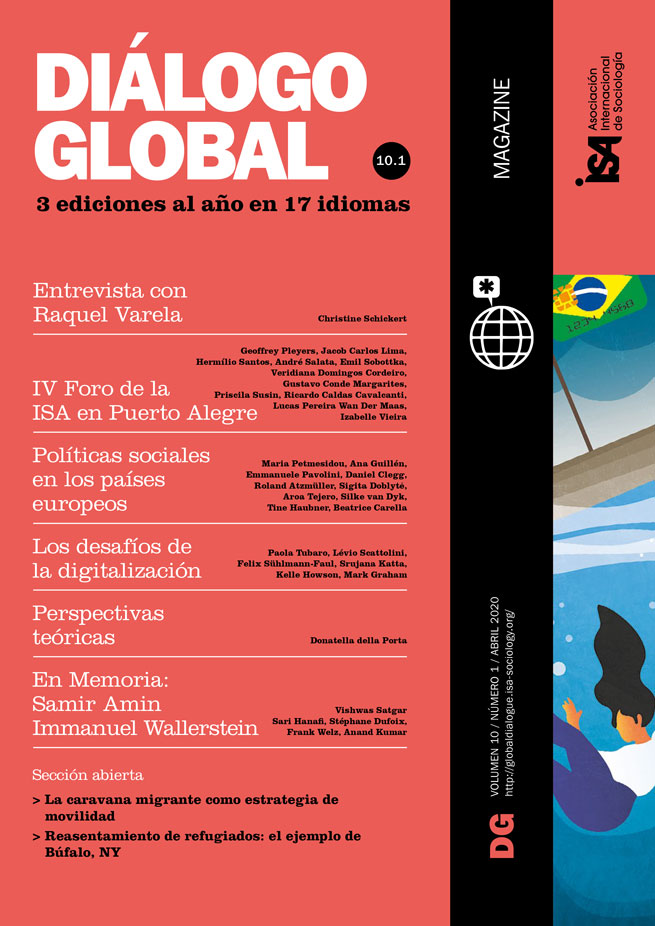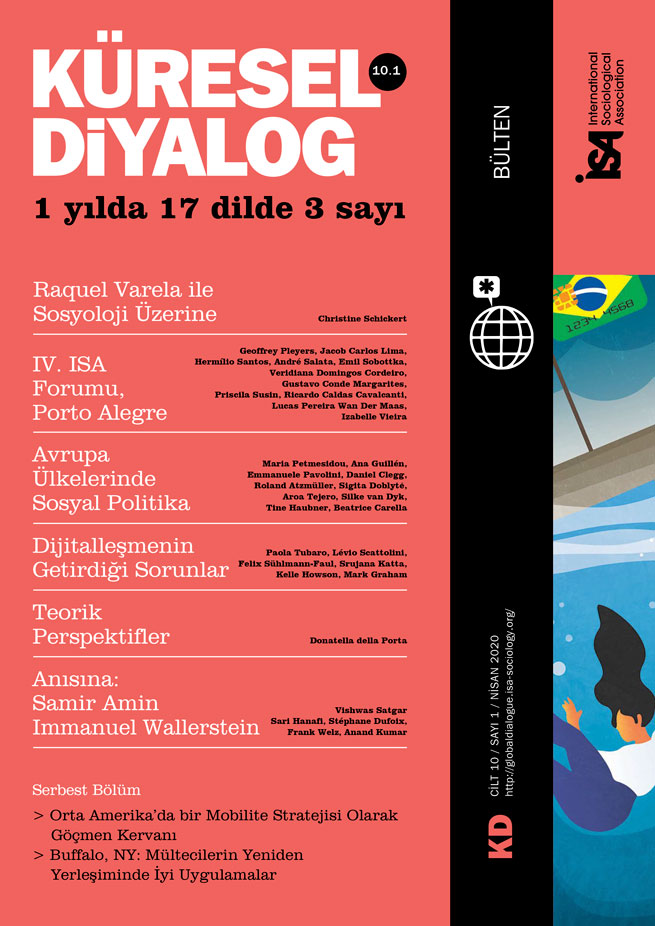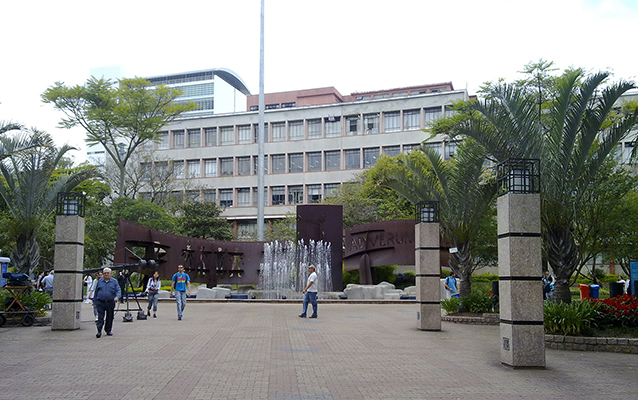The current situation of Brazilian sociology is paradoxical: on the one hand, a high level of institutionalization, productivity, and diversification; on the other hand, explicit attempts, especially from government officials, to delegitimize the contribution and relevance of the discipline to the development of society. This is the sensitive context in which Brazil will be hosting for the first time a major event of the International Sociological Association (ISA): the IV ISA Forum of Sociology, taking place on July 14–18, 2020 at the Pontifical Catholic University of Rio Grande do Sul (PUCRS), in Porto Alegre. The commitment of Brazilians to the ISA is not new, and has been consistently growing over the last decades, as shown by the presidency of Fernando Henrique Cardoso, the first and only Latin American to chair the Association since its foundation in 1948. Against this complex background, the Forum gains even greater relevance for engaging local sociologists.
Brazilian sociology first came on to the scene by framing the question of national identity through different fields of expertise. Ethnical and racial issues were particularly addressed in consequence of the diverse composition of the local population: white Europeans, enslaved black African people, and the indigenous natives. Even if ethnic-racial and modernization questions remained ever-present discussions among sociologists, the influence of classical authors and the growing support for empirical investigations helped to diversify and develop national sociology in the last decades. Under the military regime (1964-85), while a young generation of sociology professors was forced into exile, unexpectedly, several sociology postgraduate programs were established, and scientific journals were conceived and made public.
The problem of social inequalities has continuously drawn the attention of most Brazilian sociologists as a central issue. For instance, Gilberto Freyre, one of the founders of the social sciences in Brazil, raised the question of how it was possible for a social order to balance itself on antagonisms as striking as those that characterized the Brazilian society since its formation. Similarly, Florestan Fernandes, whose contribution is inestimable, carried out – along with sociologists such as Fernando Henrique Cardoso, his student at the time – solid and voluminous research on how apparently archaic forms of inequality and stratification could survive processes of modernization. The significant attention given to these subjects was undoubtedly justified, given that high and persistent levels of inequality could be considered the main historically enduring attribute of Brazilian society.
The democratization period after 1984 entailed an explosion of social movements demanding rights to citizenship and political participation. Democracy and social justice became intimately connected. These themes were particularly assimilated by sociologists often involved as participant actors in their field of study. Thus, it is not surprising that Brazilian reality demands a careful sociological analysis that goes beyond the benign narratives on inequalities which characterized the dominant readings over most of the second half of the twentieth century. Events such as the 2013 protests mostly led against the government’s economic policy, and all the political demonstrations that followed, indicate that Brazilian society is far from the balance of antagonisms once used to describe it, challenging sociologists to understand this continually changing reality.
Social reality in Brazil also requires attention from multidimensional and intersectional perspectives, calling for increasingly sophisticated analytical tools. For instance, blacks still earn approximately 40% less than whites within the Brazilian labor market, and empirical research shows income also varies along with gender, region, class and so forth. Considering how different principles of stratification interact, Brazilian society is undoubtedly a very interesting case for analyzing the growing complexity of inequalities in modern society. The urgency of such social matters might also be related to the only recent interest of Brazilian sociology in environmental issues.
In a global sociology such as the one we practice nowadays, the enormous challenges faced by Brazilian society must be investigated as part of a broader reality, in a worldwide collective project. Similar questions as those described above have been recently highlighted in many other countries, and recent political events, such as the Occupy Wall Street movement, show that society is currently drawing more attention to the issue of democratization, participation, and inequalities. We have no doubt that Brazilian sociology can make a huge contribution to this debate, and that our reality provides a very stimulating frame for analyzing these empirical questions.
The present selection of six articles from young researchers from different regions of the country is a sample of the fruitful ongoing national scientific production in the sociological field. Although not an exhaustive collection, it indicates the quality of the available work and the variety of thematic, theoretical, and methodological approaches. These and many other engaged social scientists will take part in the discussions to be held during the ISA Forum, organized in partnership with the Brazilian Society of Sociology (SBS) and PUCRS.
Hermílio Santos, Pontifical Catholic University of Rio Grande do Sul (PUCRS), Brazil,Chair of the Local Organizing Committee (LOC) of the IV ISA Forum of Sociology, and President of the ISA Research Committee on Biography and Society (RC38) <hermilio@pucrs.br>
André Salata, PUCRS, Brazil, and Vice-chair of the LOC of the IV ISA Forum of Sociology <andre.salata@pucrs.br>
Emil Sobottka, PUCRS, Brazil, and Program Coordinator of the LOC of the IV ISA Forum of Sociology <esobottka@pucrs.br>


